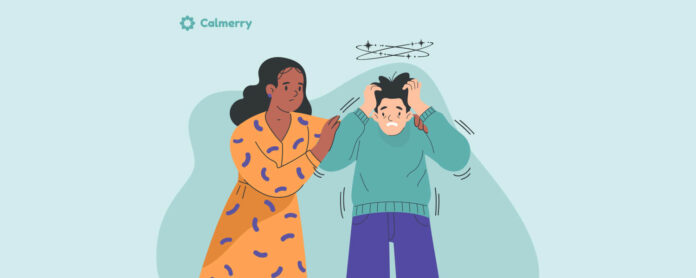Managing anxiety and stress is a crucial aspect of maintaining overall mental and physical well-being. In today’s fast-paced environment, individuals face a variety of pressures, including work demands, personal responsibilities, and social challenges, all of which can impact emotional health. Evidence-based strategies provide effective approaches for reducing anxiety, promoting relaxation, and supporting long-term mental resilience.
For those seeking reliable guidance, resources such as anxiety and stress relief offer insights into scientifically supported methods that can be integrated into daily routines. Combining these practices with lifestyle adjustments can improve coping mechanisms and foster a balanced, calm state of mind.
Understanding Anxiety and Stress
Anxiety is a natural response to perceived threats or challenges, often characterized by worry, tension, and physiological symptoms such as increased heart rate, sweating, and muscle tension. Stress, on the other hand, is the body’s response to external pressures, which can be acute or chronic. While occasional anxiety and stress are normal, prolonged or intense experiences can negatively affect mental and physical health, leading to sleep disturbances, fatigue, and decreased productivity.
Recognizing the signs of anxiety and stress is the first step toward effective management. Symptoms may include irritability, difficulty concentrating, restlessness, headaches, or gastrointestinal issues. Early intervention with evidence-based practices can prevent escalation and support overall well-being.
Cognitive-Behavioral Strategies
Cognitive-behavioral approaches are widely regarded as one of the most effective evidence-based practices for managing anxiety and stress. These techniques focus on identifying and modifying negative thought patterns that contribute to emotional distress.
Cognitive Restructuring
This technique involves challenging irrational or unhelpful thoughts and replacing them with more balanced perspectives. By reframing negative thinking, individuals can reduce the intensity of anxiety and stress responses.
Behavioral Activation
Engaging in positive and goal-oriented activities helps shift focus away from stressors and promotes a sense of accomplishment and control. Regular participation in meaningful activities supports emotional stability and resilience.
Mindfulness and Relaxation Practices
Mindfulness and relaxation techniques are essential tools for managing anxiety and stress. These practices promote present-moment awareness, reduce rumination, and support physiological relaxation.
Meditation
Mindfulness meditation involves focusing attention on the present moment while acknowledging thoughts and feelings without judgment. Research indicates that regular meditation can reduce anxiety, lower cortisol levels, and improve emotional regulation.
Deep Breathing Exercises
Controlled breathing exercises, such as diaphragmatic breathing or the 4-7-8 technique, activate the parasympathetic nervous system, promoting relaxation and reducing stress-related symptoms like rapid heart rate and muscle tension.
Progressive Muscle Relaxation
This method involves systematically tensing and releasing muscle groups to decrease physical tension and promote mental calmness. Progressive muscle relaxation has been shown to reduce anxiety and improve sleep quality.
Physical Activity and Lifestyle Modifications
Regular physical activity is a well-documented evidence-based practice for reducing anxiety and stress. Exercise stimulates the release of endorphins, supports healthy sleep, and improves overall mood.
- Aerobic Exercise: Activities such as running, swimming, or cycling enhance cardiovascular health and boost energy levels.
- Yoga and Stretching: Combining physical movement with breath control and mindfulness reduces tension and promotes relaxation.
- Consistent Sleep: Adequate sleep is critical for regulating mood and cognitive function. Maintaining a regular sleep schedule supports resilience to stress.
Nutritional and Supplement Support
Diet also plays a significant role in managing anxiety and stress. Nutrients such as omega-3 fatty acids, magnesium, B vitamins, and antioxidants support brain function and emotional regulation. For individuals seeking additional support, targeted supplements may complement lifestyle strategies. Evidence-based products can help maintain neurotransmitter balance and improve overall emotional stability.
Social Support and Healthy Relationships
Strong social connections are vital for emotional well-being. Sharing experiences, seeking advice, and receiving encouragement from friends, family, or support groups can buffer the impact of stress and provide a sense of belonging. Cultivating healthy relationships contributes to resilience and reduces feelings of isolation, which can exacerbate anxiety.
Professional Guidance
While self-help strategies are effective for many, professional guidance is essential for individuals experiencing severe or persistent anxiety. Therapists, psychologists, and healthcare providers can provide tailored interventions, including cognitive-behavioral therapy, exposure therapy, and, if necessary, medication management. Early intervention ensures safer and more effective outcomes.
Conclusion
Evidence-based practices for anxiety and stress relief offer practical and scientifically supported methods for promoting emotional stability and overall well-being. Cognitive-behavioral strategies, mindfulness, physical activity, nutrition, social support, and professional guidance collectively provide a holistic approach to managing stress and anxiety. Integrating these techniques into daily routines can improve coping mechanisms, enhance resilience, and foster long-term mental and emotional health. Resources such as anxiety and stress relief provide further guidance to support individuals in adopting effective, research-backed practices for a calmer and more balanced life.

